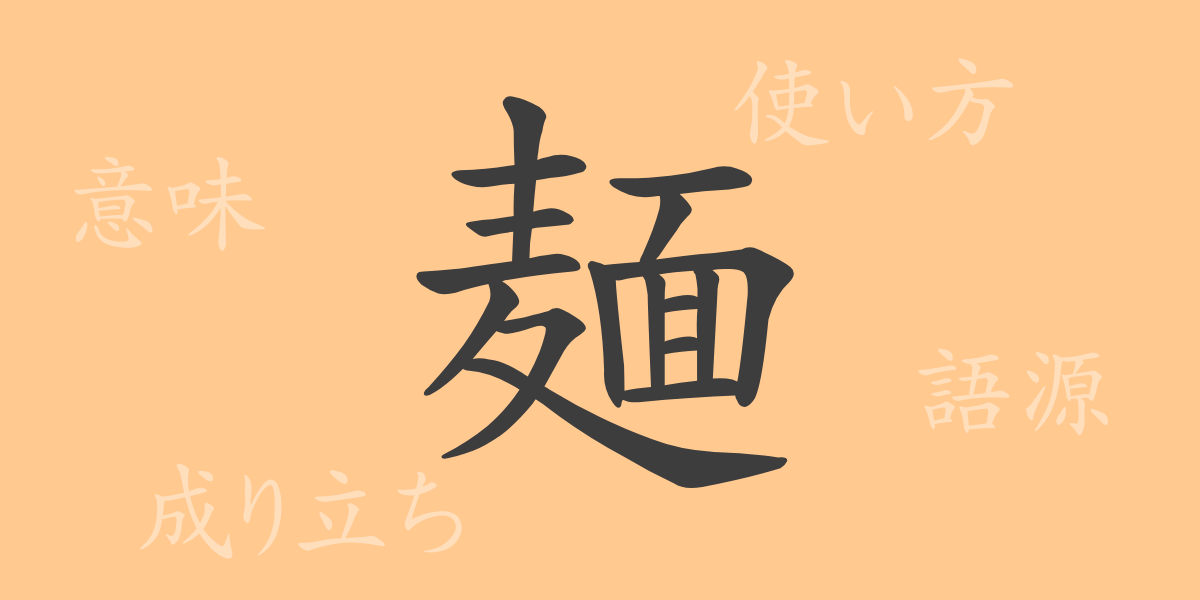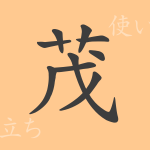“Noodles” (めん, men) are indispensable in Japanese food culture. This single character carries a long history and deep meaning. In this article, we will delve into the origins, meanings, usage, and readings of noodles. We will also introduce idioms and phrases related to noodles, allowing you to appreciate the depth of the Japanese language.
The Origin of Noodles (語源, Gogen)
The origin of “noodles” (麺, men) can be traced back to China. Historically, it was written as “麵” and referred to food made by kneading and stretching wheat flour. In Japan, various types of noodles, including Chinese noodles, are beloved, and the character “麺” (men) has become a common part of everyday language.
Meaning and Usage of Noodles
The character “noodles” (麺, men) is primarily used in contexts related to food. It refers to food made by mixing flour, such as wheat or buckwheat flour, with water, kneading it, and stretching it into long, thin shapes. It is often used in the names of dishes, such as “ramen” (ラーメン, rāmen), “udon” (うどん, udon), and “soba” (そば, soba).
Reading, Stroke Count, and Radical of Noodles
The character “noodles” (麺, men) has the following details:
- Reading: In On’yomi (音読み, onyomi), it is read as “men” (メン, men). There is no specific Kun’yomi (訓読み, kunyomi).
- Stroke Count: It has a total of 19 strokes.
- Radical: The radical is “wheat” (麦, mugi), and characters containing this radical are classified under the wheat radical.
Idioms, Phrases, and Proverbs Using Noodles
There are not many idioms or phrases related to noodles, but one expression is “to draw a noodle line” (麺線を引く, mensen wo hiku). This phrase comes from the act of cutting noodles into thin, long strands, and it is used to mean clearly defining boundaries.
Summary of Noodles
The single character “noodles” (麺, men) reflects not only the direct meaning as a food but also the richness of Japanese culture and language. As an ingredient rooted in Japanese life, noodles are familiar to many people. Through this article, your knowledge of noodles will deepen, and you may discover something new the next time you enjoy a noodle dish.

























